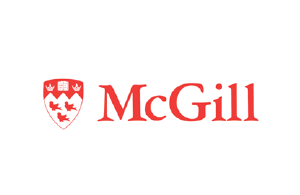McGill has been successful in the national competition for a massive amount of research funding under the federal government’s Canada First Excellence Research Fund (CFREF), which will provide the University with an $84-million grant over seven years to support an ambitious effort in neuroscience to advance understanding of the human brain and ease the burden of neurological and mental-health disorders.
By McGill reporter staff
$ 900 million for universities
Ottawa invests almost a billion dollars in to research for major Canadian universities.
Vincent Maisonneuve
See video on Radio-Canada here
Healthy Brains for Healthy Lives (HBHL) Fact Sheet
Support from the Canada First Research Excellence Fund (CFREF)
- $84 million in federal funding over seven years
- $150 million for Canadian neuroscience via CFREF projects at McGill (HBHL) and Western ($66 million for “Beautiful minds: Brain health for life”)
- $213.2 million for three complementary Montreal projects at McGill, Université de Montréal, and Polytechnique Montréal
Collaborations
- Financial support for innovation from the Government of Quebec
- More than $50 million in philanthropic gifts already committed
- 3 partners on a new pan-Canadian Network for Brain Health: Western University, Brain Canada, and Canadian Institute for Advanced Research (CIFAR)
- 19 academic institutions
- 12 foundations
- 9 industry partners
- 7 Canadian consortia
- 5 international consortia
- BigBrain Project
- European Human Brain Project
- Human Connectome Project
- Organisation for Economic Co-operation and Development (OECD)
- Organisation of Human Brain Mapping
- 4 incubators
- 3 venture capitalists
- 3 research networks
- 1 research commercialization agent
Building on world-class resources
- Inaugural Scientific Director: Alan C. Evans, who is in the top 1% of highly cited researchers in the world
- McGill Neuroscience brings together
- 250 scientists and clinicians
- 1,300 graduate students
- 255 postdoctoral fellows
- $65 million annually in research funding
- Affiliated hospitals, research institutes, and basic research departments
- Montreal Neurological Institute and Hospital
- McGill Centre for Research in Neuroscience
- Douglas Mental Health University Institute
- McGill University and Genome Quebec Innovation Centre
- Lady Davis Institute for Medical Research
- Ludmer Centre for Neuroinformatics and Mental Health
- McGill University Health Centre Goals
- Understand the healthy brain
- Shed new light on how the brain wires itself
- Advance how we categorize disorders
- Develop new diagnostic tools
- Discover new ways to treat disease
- Improve patient access to novel treatments
- Translate knowledge into public health, workplace, or social interventions
How the funding will be spent
- Research
- Discovery Fund for Interdisciplinary Research
- Research Transition Awards
- Seed Award for Innovative Ideas
- Talent
- Student and Postdoctoral Fellow Training Clusters
- New Investigators Start-up Grants
- Visiting Fellows
- Innovation
- International Collaboration Platform
- Neuro-Innovation Fund
- Knowledge Mobilization
- Infrastructure
- Technology Development
- Core Facilities Operations
Anticipated outcomes by 2023
- “Canadian Framework for Brain Health” launched
- $84 million in leveraged funds from external sources (1:1)
- 1,500 high-income jobs
- 30 spinoff companies and licensing contracts
- 10% increase of McGill faculty working in related areas
- 20% increase of McGill students and postdoctoral fellows working in related areas


